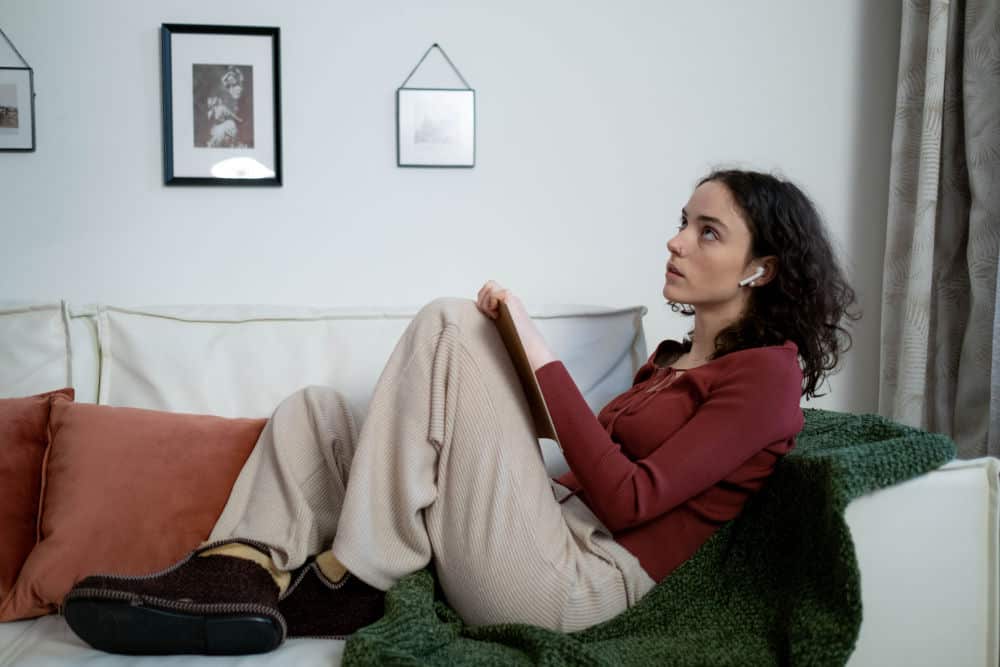
Throughout the previous two years, we’ve experienced disruptions to the way we socialise, work, study, exercise, connect, parent and go about our daily lives. Our choices and the ability to move around were seriously compromised, causing isolation and disruptions to our livelihoods, relationships and general wellbeing. The distress this caused was exacerbated by the uncertainty around the virus and how the authorities responded to a constantly changing reality.
Life crises or major life changes such as divorce, loss of a job, bereavement, illness, having a child, and the like, cause people to stop and re-examine their lives and what’s important to them. Whilst all major changes can have a huge impact on our lives, Covid-19 was different in that it was forced upon us, as were decisions around how we led our daily lives. This resulted in many people making decisions and changes to their lives which they probably wouldn’t have, were it not for Covid.
One way in which Covid changed us was that it brought us face to face with our mortality, reminding us that life is finite and precious. Unfortunately, it’s often when we’re deprived of people and things which bring us happiness and meaning that we become aware of just how valuable these things are. Not being able to travel to see family and friends, and experiencing lockdown and quarantine, caused many to reflect on the importance of community and relationships. Many chose to move home to live closer to family and friends. Others moved out of large cities to smaller, more rural areas. Some began to think about finding more meaningful jobs and careers, adopt healthier lifestyles and take up new activities and hobbies, such as hiking, gardening, yoga and so on. Mental health and general well-being were also prioritised during this time, as the impact of Covid took its toll on people’s physical and emotional well-being.
Of course, Covid needn’t be a redefining moment for everyone. I’d be very surprised, however, if anyone emerged unscathed or unchanged from this experience. Most of us, young or old, were impacted by the pandemic and will feel its impact for years to come. Whatever your experience is, no difficult period is without its lessons, so I’d like to encourage you to take this opportunity to reflect on what you learnt during this time, whether it’s about who you are or what’s important to you. To help you do this, here are some questions to ask yourself:
What would your ideal life look like? Try to visualise the life you want, in as much detail as possible. For instance, you may imagine having more time for yourself, working fewer hours, or doing a job where you help people rather than being stuck in an office all day. You may imagine having a dog and living closer to the sea, or living with a partner. Make a list of these things and notice how you feel when you think of them. Do such thoughts make you smile, make you feel calm or excited?

What activities make you happy? Do you go out often but not even enjoy these social activities? Would you rather go out less and spend more time at home with family and friends? Alternatively, do you want to go out and experience more? Would you like to play more sport, or spend more time doing something artistic? Here, try to differentiate between what you enjoy doing as opposed to what people want or expect from you.
What are the five most important things to you, in order of importance? Here you’re listing your priorities. It could be anything from career, family, travel, alone-time, health, success, helping people, to personal growth. Whatever rocks your boat, jot it down.
A client of mine told me that being separated from her ageing parents during Covid made her realise that she couldn’t live apart from family and friends anymore. As soon as the border to her country opened, she was on the first flight home.
What goals can you set which would help you start living in line with your priorities? Focus on one priority at a time and list the steps which would need to happen in order for you to achieve your goals. For instance, if one of your priorities is to start your own business, list anything and everything you’ll need to do to get closer to that goal. This may involve attending a course on marketing or business management, saving money, researching the product, and so on. Break these goals down into short-term, mid-term and long-term goals.
What do you need to give up or sacrifice to achieve these goals? Sometimes, achieving a goal may involve letting certain things go. For instance, if your goal is to have more time for yourself, you may need to work fewer hours or cut down on some of your commitments. Here you may have to face your fear of disappointing people, or learn to say ‘no’ more. This may be challenging but it does get easier once you start seeing results. The first step, however, is knowing what needs to be relinquished in order to live the life you want.






